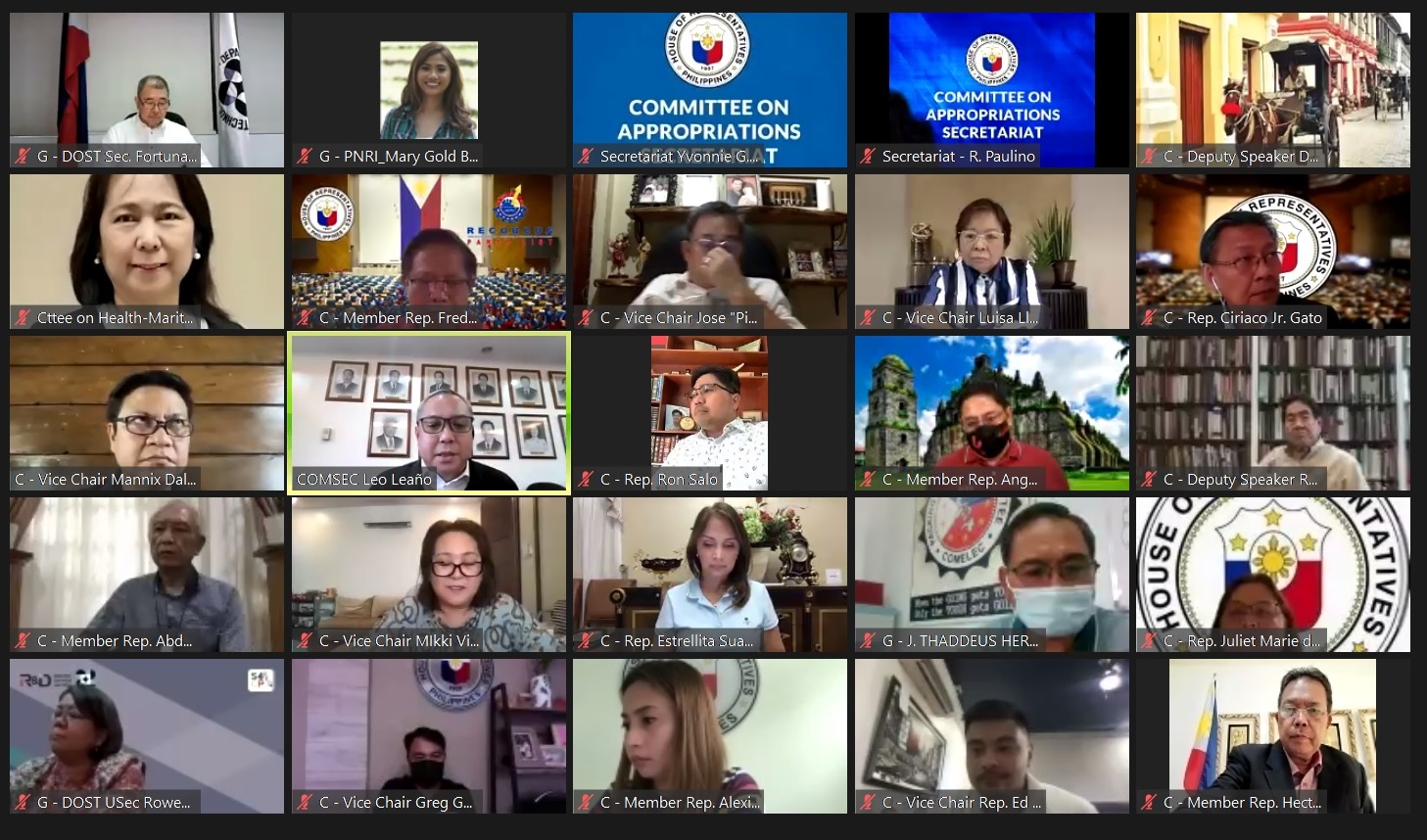
Atomic regulation bill OK’d by House Committee
The bill towards a stronger legal regulatory framework for ionizing radiation again moves forward as it hurdles the House Committee on Appropriations.
The Committee recently approved the substitute bill for the Comprehensive Atomic Regulation Act, consolidating 13 house bills in support of the measure.
During the committee meeting last May 12, Secretary Fortunato de la Peña of the Department of Science and Technology (DOST) expressed his support for the creation of an independent regulatory body consistent with international standards.
Among the key provisions of the bill is the proposed creation of the Philippine Atomic Regulatory Commission which will be charged with the regulation of all activities and facilities involving sources of ionizing radiation.
These include nuclear and radioactive materials, facilities, and radiation-generating equipment which are commonly used in the medical and industrial sectors.
The Philippines currently has two regulatory bodies dealing with ionizing radiation. The Philippine Nuclear Research Institute (PNRI) regulates nuclear and radioactive materials and facilities. Meanwhile, the Center for Device Regulation, Radiation Health and Research under the Food and Drug Administration of the Department of Health regulates radiation generating devices such as x-ray machines.
The Secretary mentioned that no less than the International Atomic Energy Agency (IAEA) has repeatedly emphasized that regulatory functions should be separate from promotion and research work, hence the proposed creation of PARC as a separate regulatory agency from PNRI.
He also emphasized the timeliness of the legislative measure given the continued expansion of nuclear applications in agriculture, medicine and industry, and because the country is once again studying the inclusion of nuclear power to its energy mix.
President Rodrigo Duterte signed Executive Order 116 last year, which created the Nuclear Energy Program Inter-Agency Committee (NEPIAC) to study the adoption of a national position on nuclear power. The NEPIAC is chaired by the Department of Energy with the DOST as vice-chair.
The study incorporates the IAEA’s Milestone Approach on 19 nuclear infrastructure issues a country must first address in preparation for a nuclear power program, including the establishment of an independent regulatory body.
The bill was previously approved by the House of Representatives in January 2019, well before the closing of the 17th Congress.
The bill was later re-filed in the 18th Congress, where it was approved during the House Joint Committee on Government Reorganization, Science and Technology and Energy in March 2020, before the COVID-19 pandemic led to stringent community quarantine measures across the country.
In the Senate, counterpart bills were filed by Senate President Vicente “Tito” Sotto III and Senator Ramon “Bong” Revilla, Jr.
Members of the House Committee on Appropriations met virtually to approve the substitute bill for the Comprehensive Atomic Regulation Act. They are joined by DOST Secretary Fortunato de la Peña, DOST Undersecretary for R&D Rowena Cristina Guevara, as well as other DOST officials and staff.












































